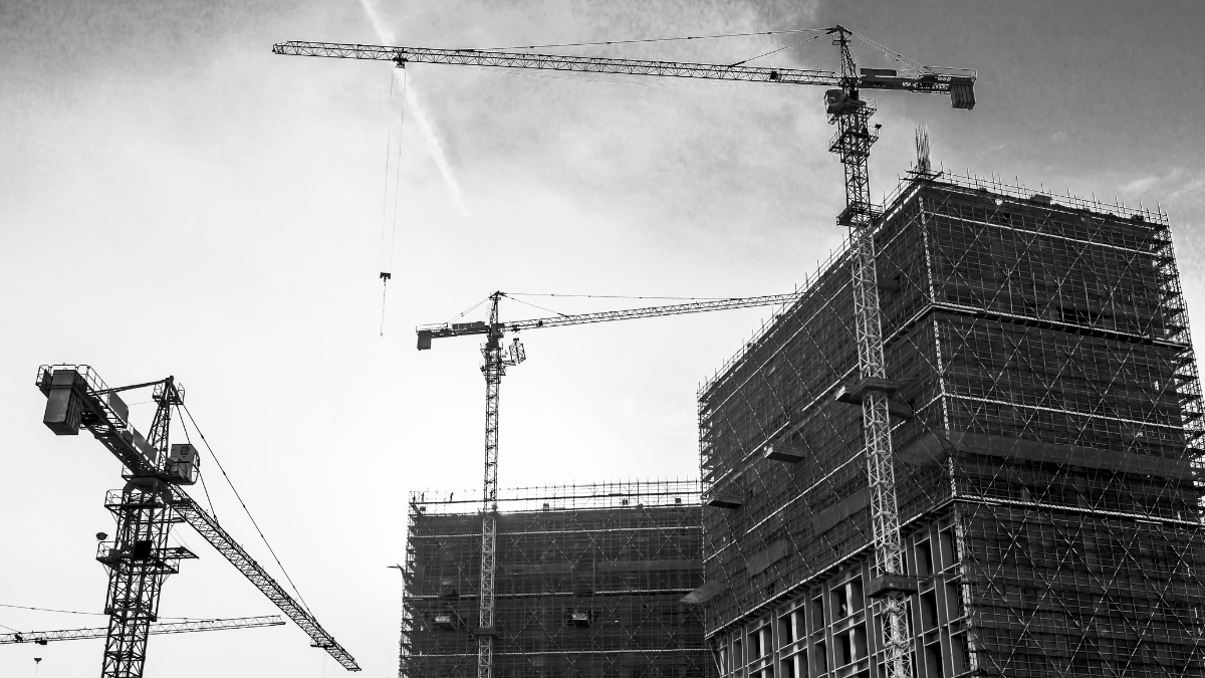Construction claims of any complexity are a distraction to your business, potentially costly and introduce an unwelcome element of uncertainty and we aim to provide constructive and proactive advice at an early stage.
Click here to contact us about your matter.
Our in-depth knowledge of the construction industry allows us to provide practical guidance and to formulate strategies which promote the objectives of your business.
We have a wealth of experience in representing both claimants and defendants in mediation, adjudication, arbitration and litigation and we act for clients over a wide range of construction disputes including defective works, loss and expense, delay, claims for unpaid sums and contractual interpretation.
Please Note - If your claim is under the value of £10,000, your dispute is likely to fall under the small claims track which means you will not usually recover any costs incurred even if you win. A bespoke estimate of fees will be provided (starting at £750 plus vat) to review your matter and provide initial advice.
What type of claims do our construction dispute solicitors specialise in?
Disputes in the construction industry can arise for a variety of reasons, this is often due to the complexity of construction projects and the number of stakeholders involved. Some common causes of construction disputes include:
Contract ambiguity
Poorly drafted or ambiguous contract terms may lead to disagreements between parties with different interpretations of a clause or term.
Design errors and omissions
Errors in design documents, specifications, or drawings may result in construction defects or delays, leading to disputes. Omissions in design documents may result in variations to the works or disputes over design liability.
Variations
Variations to the original scope of work, whether requested by the client or contractor, can lead to disagreements over the costs, timelines, and responsibilities for those variations.
Delays
Delays in project completion due to factors such as adverse weather, material shortages or labour shortages may lead to disputes over time extensions, additional costs, or liquidated damages. In recent years, global events have also significantly impacted construction projects, leading to disputes over the delays.
Ground conditions
The discovery of man-made items such as antiquities or unexploded munitions, or unforeseen or differing ground conditions, such as unexpected soil types, underground utilities, or environmental issues, can lead to disputes over who should bear the additional costs and time required to address these conditions.
Defective work or materials
Claims of substandard workmanship or defective materials can lead to disputes over responsibility for rectifying the issues and their associated costs.
Payment issues
Disputes may arise over payment terms, amounts, or delays, as well as disagreements over lien rights or retainage.
Project management
Inadequate project management or poor communication among stakeholders can lead to misunderstandings, delays, and disputes.
Subcontractor performance
Disagreements may arise between the client and/ or main contractor and subcontractors over performance, scope of work, or payment terms.
Termination
Disputes can arise over the termination of contracts, whether for convenience or for cause, and the resulting financial implications.
Click here to contact us about your matter.

I want to make a construction claim, what are my options?
You do not always have to go to court for a construction claim. In fact, most construction claims are resolved through alternative dispute resolution (ADR) methods, which are typically less adversarial, faster, and more cost-effective than going to court. Some common ADR methods include:
Negotiation
Parties involved in the dispute can directly negotiate with each other to reach a mutually acceptable resolution, often with the help of legal counsel or consultants.
Mediation
A neutral third party, the mediator, facilitates communication between the disputing parties to help them reach a voluntary settlement. Mediation is non-binding, meaning that if the parties cannot reach an agreement, they can still pursue other dispute resolution methods.
Arbitration
A neutral third party, the arbitrator, hears the case and makes a decision, which is usually binding on the parties. Arbitration is similar to a court proceeding but is generally faster, more flexible, and less formal.
Adjudication
A neutral third party, the adjudicator, provides a decision on the dispute, which is usually binding on a temporary basis, pending the resolution of the dispute through another method, such as arbitration or litigation.
Click here to learn more about construction adjudication and how we can assist you.
While these alternative dispute resolution methods can often resolve construction claims more efficiently than court litigation, some cases may still require court intervention. This can occur when parties cannot reach an agreement through an alternative dispute resolution method, or when the nature of the dispute or the contractual provisions necessitate legal action.
Click here to contact us about your matter.
What happens during the initial construction claims process?
The specific steps and procedures involved in the initial construction claims process can vary depending on a number of factors, including the terms of the contract, the applicable laws and regulations, and the nature of the dispute itself.
Whilst it is always important to consult with a legal advisor who specializes in construction law to understand the specific procedures and requirement that might apply to your situation, there are several general considerations to keep in mind:
Identifying the issue
The party who believes they have a claim must first identify the issue, such as a contract dispute, delay, defective work, or payment problem. They should gather relevant documentation and evidence to support their claim.
Review of contract and legal obligations
Parties should review the construction contract, along with any applicable laws and regulations, to understand their rights and obligations related to the claim.
Notice of claim
Many construction contracts require that the claiming party provide written notice of the claim to the other party within a specified time frame. This notice should include a description of the issue, the basis for the claim, and the relief sought.
Financial due diligence
Before commencing a claim, it's important to assess whether the potential defendant has the financial means to pay any potential damages or settlements.
Informal resolution
Before resorting to formal legal proceedings, the parties may attempt to resolve the dispute through negotiation, mediation, or other informal means.
Retaining legal advisors
If informal resolution efforts fail, parties may retain a construction lawyer to represent their interests and provide guidance on the appropriate dispute resolution method, such as adjudication, arbitration or litigation.
Initiation of formal proceedings
The claiming party may initiate formal legal proceedings by filing a claim with the appropriate dispute resolution forum, such as an arbitration tribunal or court.
Contact our construction claim lawyers
Throughout the construction claims process, our legal team plays a vital role in protecting the interests of their clients, navigating the complexities of construction law, and working towards a favourable resolution. The specific steps in the claims process may vary depending on the nature of the dispute, the jurisdiction, and the applicable dispute resolution method.
If you're facing a construction dispute or are pursuing a construction claim, we can help. Our team of legal advisors specializes in construction law and can guide you through the various methods of resolving disputes. Don't let a construction dispute drag on and hurt your business.
Contact us today by completing the form below and take the first step towards a resolution.
Key Contact

Phil Caton
Construction Law Partner
Phil is a Partner at the firm who specialises in both transactional and contentious construction matters.


